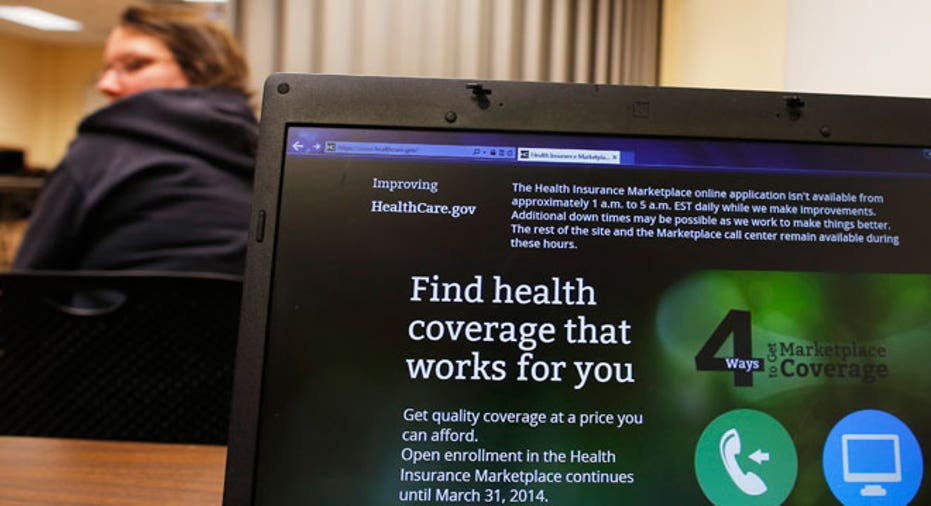ObamaCare Week 8 Progress Report: Another Delay

In week eight of the Affordable Care Act’s open enrollment season, the administration announced another significant delay for the 2014 enrollment period.
The Department of Health and Human Services confirmed to FOX News Friday that the enrollment period for 2014 would be delayed by one month to start on Nov. 15, 2014 (and after midterm elections).
The move just allows more confusion to persist, says Brookings Institution visiting fellow Larry Kocot, which isn’t good for consumers and certainly doesn’t benefit the Obama Administration. He says this delay on top of the president’s announcement last week of a fix that allows people to can keep cancelled insurance plans at the discretion of the state regulators and insurers, only further complicates the rocky rollout.
“We are still trying to sort out what the extension of these different plans means,” Kocot says. “States and insurers are making their decisions; meanwhile millions of people are still waiting for the final determination as to what they should do on Jan. 1. This delay is not good for public perception.”
Insurance premium submissions are turned in during April, according to Kocot, so if the idea was to lower costs and give insurance companies more time to take into consideration their 2014 experiences, the idea would be to push that date forward.
Yevgeniy Feyman, Manhattan Institute scholar says the new delay just adds to the unpredictable nature of the rollout.
“We are learning new things every day and the administration is playing around with the law,” Feyman says. “There is no predictability or hard deadlines—it’s a failure.”
Enrollment
Feyman says he wouldn’t be surprised if the individual mandate deadline gets pushed back considering the past eight weeks. Under the mandate, every individual in the country must have coverage by April 1, 2014. If they fail to obtain coverage for more than three months after that date, they will be fined $95 or 1% of their annual income for not complying with the mandate.
“I think there is really good reason to believe the entire exchange system and the crux of the law may get delayed,” Feyman says.
HHS released the first round of enrollment numbers last week, reporting 106,185 people had selected plans on the state and federal exchanges. This group includes both those who may and may not have paid their monthly premiums. In the insurance industry, it’s standard procedure to only identify enrollees as those who have paid the premium.
“I think by all anecdotal indications, the sites are working better and more people are coming into the system,” Kocot says. “Whether they will pay their premiums or not remains the question.”
Exchange Performance
The administration’s own Nov. 30 deadline to have the troubled Healthcare.gov site up and running is quickly approaching, and Feyman says he is not confident the goal can be met.
“The administration has had basically two months to now fix what is wrong with the exchange, and has not,” he says. “I am not optimistic about November 30, and think that deadline is not feasible.”
On Friday, chief performance officer under president Obama Jeff Zients said that HealthCare.gov will have the capacity to handle 50,000 users at a time by the end of this month. Right now the site can handle half that.
Henry Chao, deputy chief information officer at the Centers for Medicare and Medicaid Services, testified before the House Energy and Commerce Committee on Wednesday, admitting that between “30% and 40% “of the ObamaCare exchange software still hasn’t been built.
“This infrastructure still has to be fixed up and set up for the exchange to work completely—that is abysmal,” Feyman says.
But Kocot is more optimistic.
“Some pieces have different timelines and won’t impact the overall performance of the system,” he says. “Percentages on completion at this point can be misleading. This certainly won’t impact enrollment, unless this has a ripple effect for the system to work properly. These percentages may not be as relevant to the November 30 deadline as they are later on.”



















